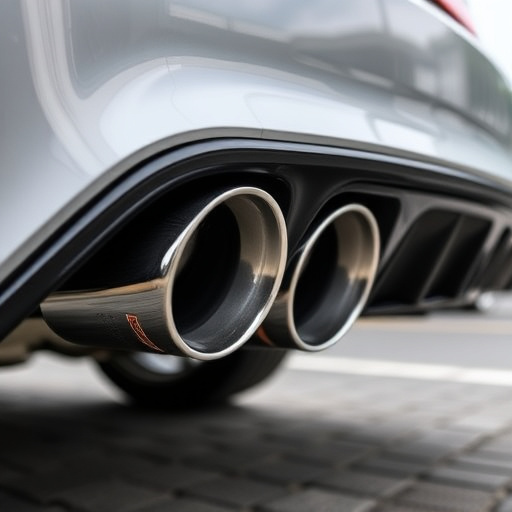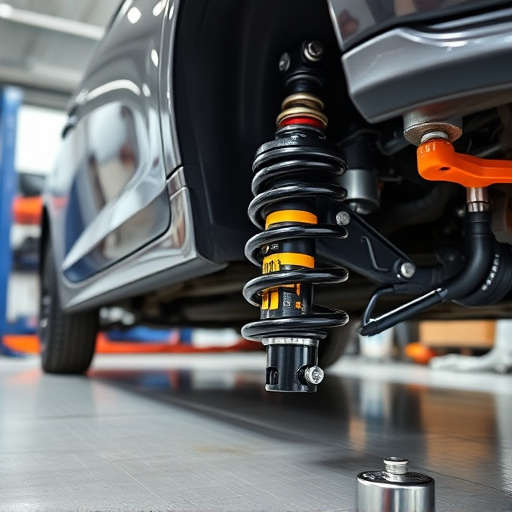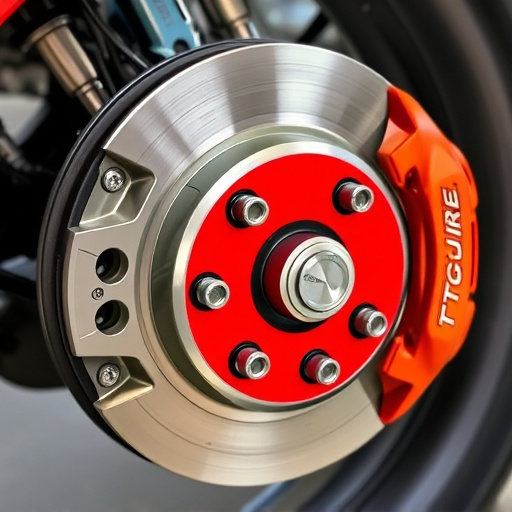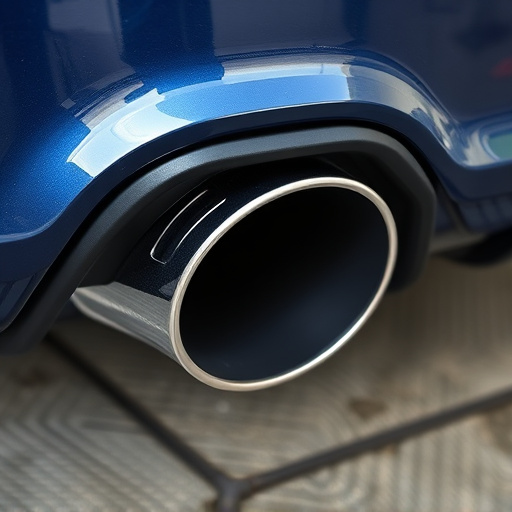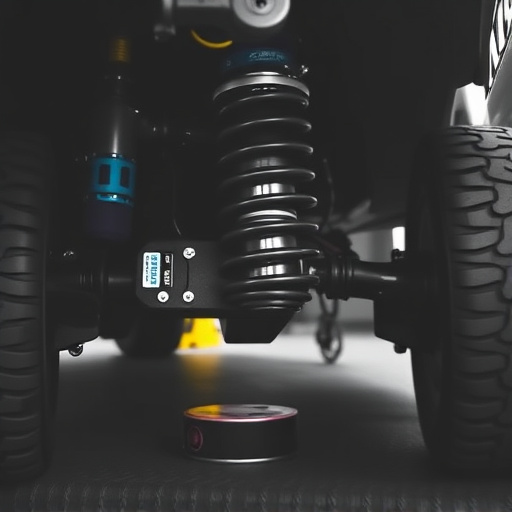An oiled air filter is a vital component in your vehicle, protecting against dirt and debris that can harm engine parts. Regular cleaning and re-oiling (every 10-15k miles or annually) prevent clogging, maintain optimal airflow and power, improve fuel efficiency, and protect the engine from damage caused by a dirty filter. Proper care extends the filter's lifespan and ensures smooth driving.
Maintaining your vehicle’s oiled air filter is crucial for optimal engine performance. Over time, these filters can accumulate dirt and debris, leading to reduced airflow and potential engine issues. This guide provides a comprehensive step-by-step process to clean and re-oil your oiled air filter properly. We’ll also explore best practices for regular maintenance and signs indicating when it’s time for a replacement, ensuring you keep your engine running smoothly.
- Understanding the Oiled Air Filter: Its Role and Common Issues
- Step-by-Step Guide to Cleaning and Re-Oil an Oiled Air Filter
- Best Practices for Maintenance and When to Replace Your Filter
Understanding the Oiled Air Filter: Its Role and Common Issues
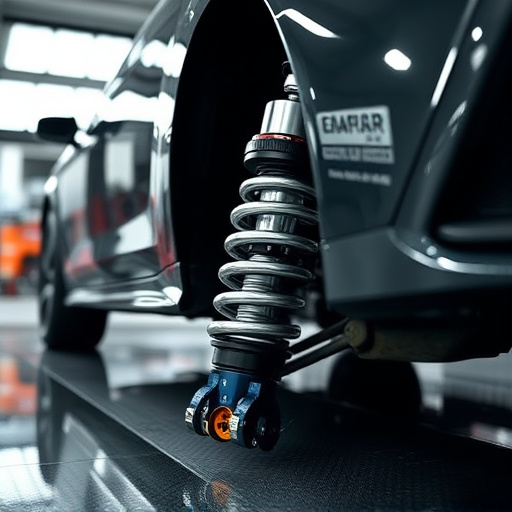
An oiled air filter is a crucial component of your vehicle’s engine, playing a vital role in keeping the air intake system clean and efficient. It acts as a barrier, trapping dirt, dust, and other contaminants that could damage sensitive components like exhaust mufflers and coils in coilover kits. Regular cleaning and re-oiling are essential to maintain optimal performance and extend the lifespan of your air filter.
Common issues with oiled air filters include clogging due to buildup of debris, which can restrict airflow and reduce engine power. Neglecting proper maintenance may lead to a less effective air filtration system, potentially impacting fuel efficiency and overall engine health. By understanding these challenges, you can better appreciate the significance of adhering to a consistent cleaning and re-oiling routine for your oiled air filter.
Step-by-Step Guide to Cleaning and Re-Oil an Oiled Air Filter
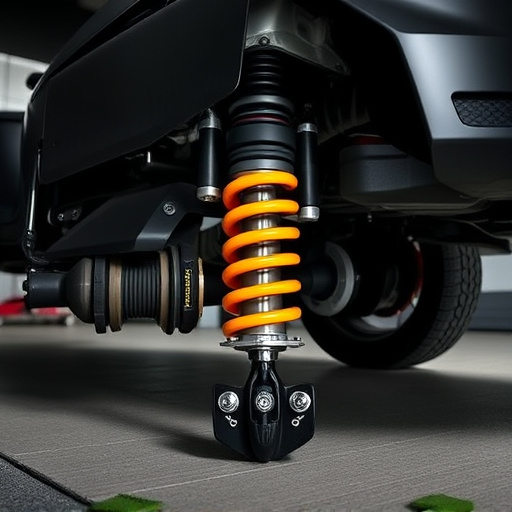
Cleaning and re-oiling your oiled air filter is a crucial task to ensure optimal engine performance. Here’s a straightforward guide to help you through the process:
1. Remove the Air Filter: Start by locating your vehicle’s air filter, typically found in the engine compartment. Carefully remove the old air filter by unfastening or unscrewing its holding mechanism. Take note of how it was installed for future reference.
2. Clean the Air Filter: Gently shake off any excess dirt and debris from the filter media. For a deeper clean, you can use a soft brush or a vacuum to remove ingrained particles. Ensure that no foreign objects are left behind as this could cause damage when reassembling. If your air filter is heavily soiled, consider soaking it in a suitable cleaning solution recommended for vehicle filters. This will help dissolve any accumulated grime.
Best Practices for Maintenance and When to Replace Your Filter
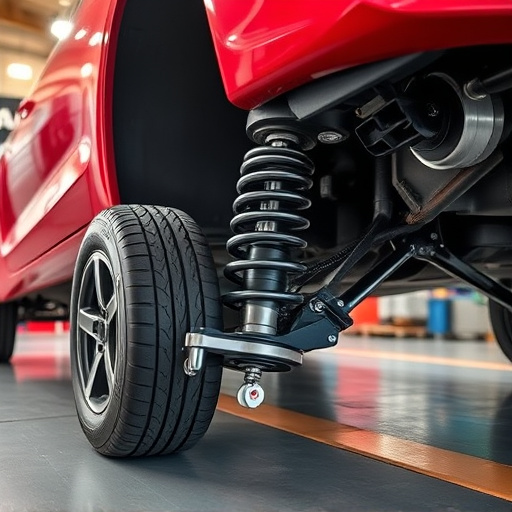
Regular maintenance is key to keeping your oiled air filter in top condition and ensuring optimal engine performance. It’s recommended to clean and re-oil your air filter every 10,000 to 15,000 miles or at least once a year, depending on driving conditions and climate. This process involves carefully removing the old oil and dirt buildup while ensuring the filter media remains intact.
Proper maintenance of your oiled air filter extends its lifespan, improves airflow in your vehicle’s air intake systems, and keeps suspension components free from debris. By replacing it at the right time, you’ll also prevent potential damage to your engine caused by a clogged or inefficient filter. Remember, a well-maintained oiled air filter is essential for smooth driving, ensuring your vehicle’s suspension kits operate efficiently and safely.
Regularly cleaning and re-oiling your oiled air filter is a simple yet effective way to maintain optimal engine performance. By following these steps and best practices, you can extend the life of your filter, improve airflow, and reduce unnecessary wear on your vehicle’s engine. Remember, a well-maintained oiled air filter contributes to better fuel efficiency and overall vehicle health.









